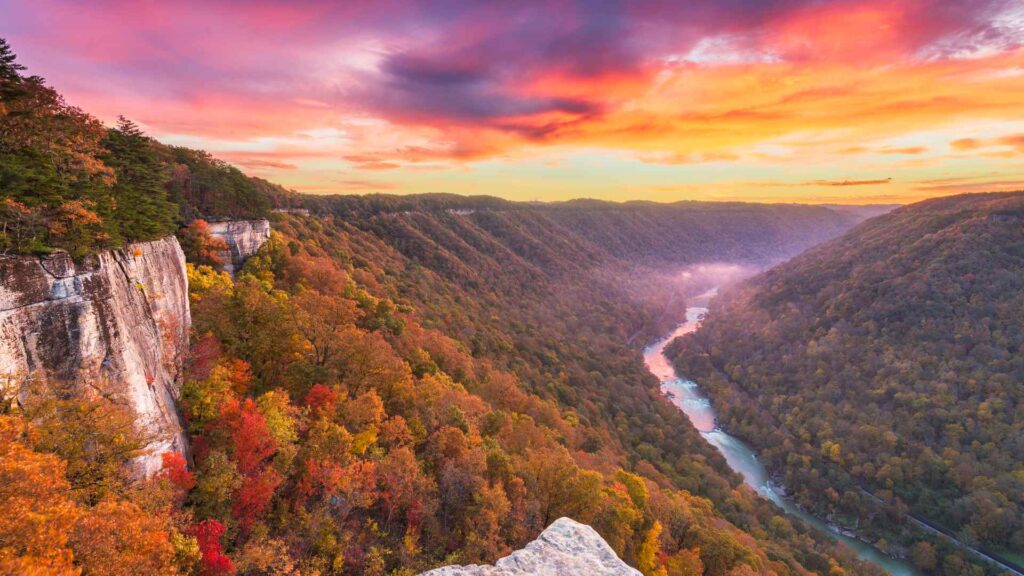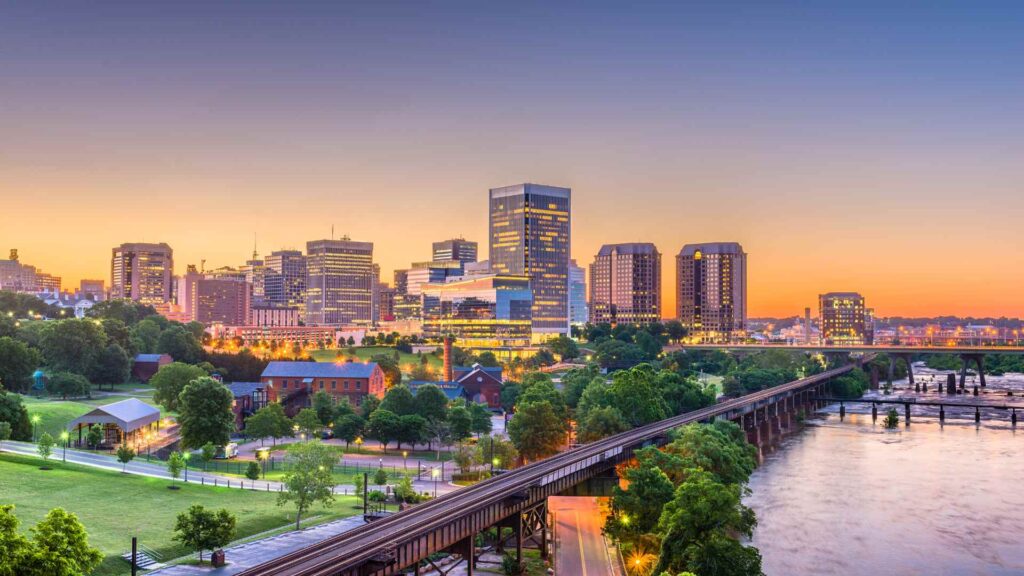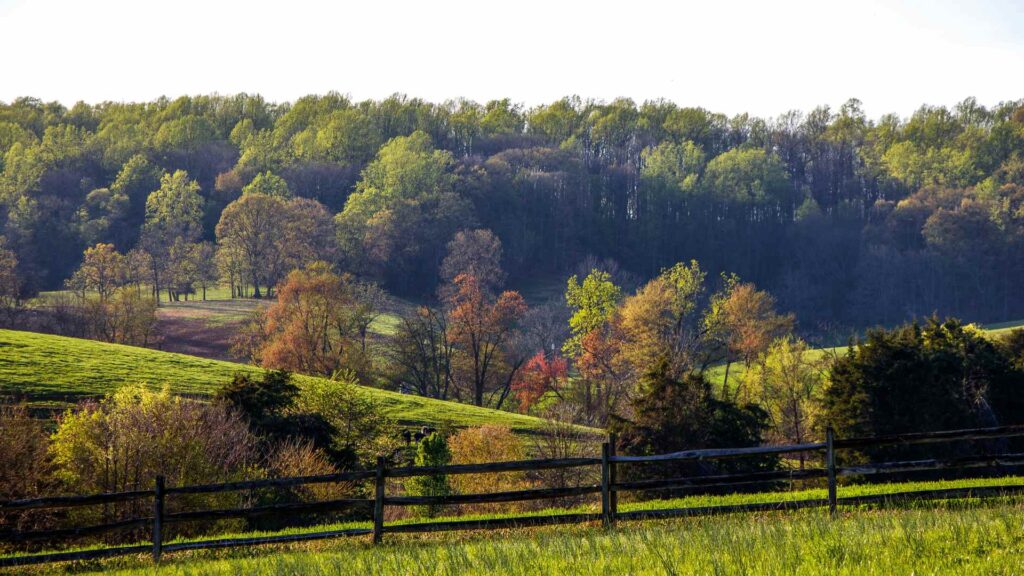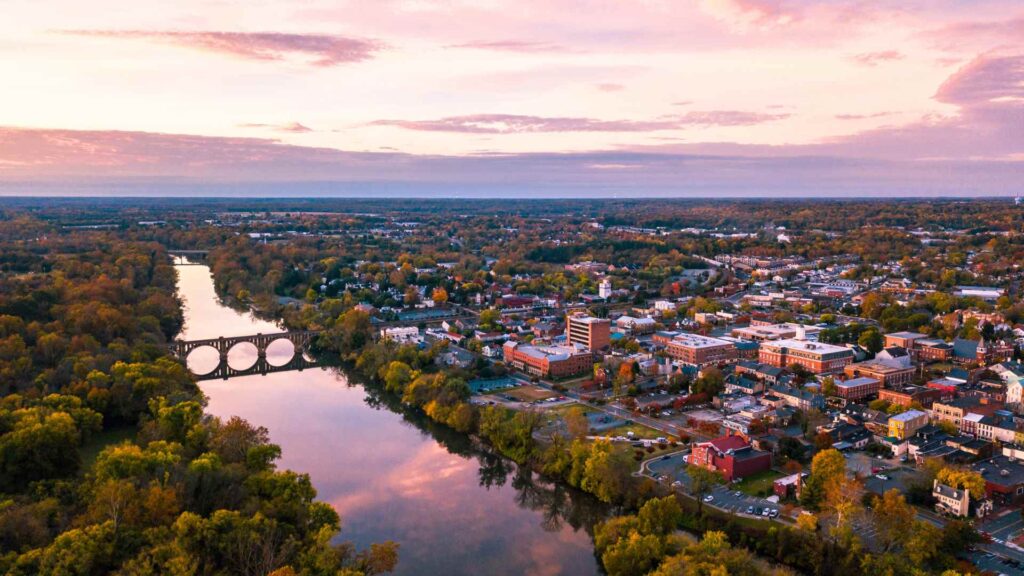Virginia, a state brimming with history, culture, and scenic beauty, has earned itself a variety of nicknames over the years.
Each of these monikers reflects a different aspect of Virginia’s unique identity. From colonial history to its role in shaping the nation, Virginia’s nicknames tell stories of pride, heritage, and influence. In this ultimate guide, we’ll delve into the origins, meanings, and significance of these iconic names.
Old Dominion
Arguably the most famous and longstanding nickname for Virginia, the “Old Dominion” is deeply tied to the state’s colonial history. This nickname was bestowed upon Virginia by King Charles II of England during the mid-17th century. But why “Old Dominion”?
During the English Civil War (1642-1651), many American colonies sided with Parliament against the monarchy. However, Virginia remained loyal to the crown. In recognition of Virginia’s loyalty to the monarchy, King Charles II referred to the colony as his “Old Dominion” after being restored to the throne in 1660.
The term symbolizes Virginia’s long-standing status as one of the earliest and most prominent colonies in the British Empire, predating the formation of the United States by more than 150 years. Even today, Virginians take pride in this title, viewing it as a nod to their state’s historical prominence.

Mother of Presidents
Few states can claim the kind of influence that Virginia has had on the presidency. Eight U.S. presidents were born in Virginia, more than any other state.
This has earned the state the nickname “Mother of Presidents.” The list of Virginia-born presidents includes towering figures such as George Washington, Thomas Jefferson, James Madison, and James Monroe—all Founding Fathers who shaped the early course of American history.
Not only did these Virginians guide the young nation, but their legacies continue to be felt today. Monticello, Jefferson’s estate, and Mount Vernon, Washington’s home, are both located in Virginia and serve as lasting symbols of their impact.
This title emphasizes the state’s role in producing some of the most important leaders in American history, establishing its claim to be a cradle of leadership and governance.
The Cavalier State
The nickname “The Cavalier State” is closely related to “Old Dominion,” as it harks back to the era of the English Civil War. Cavaliers were royalist supporters of King Charles I and his son, King Charles II, during the conflict. Virginia’s loyalty to the monarchy earned it this name, as many Royalists fled to Virginia after the war.
The image of a Cavalier became a symbol of the state’s colonial roots, and this nickname, though less widely used today, still conjures up images of Virginia’s aristocratic and noble past.
It reflects a period when Virginia was closely tied to English traditions, social structures, and political allegiances, all of which have influenced the state’s culture over the centuries.

Mother of States
Not only is Virginia known as the Mother of Presidents, but it also carries the nickname “Mother of States.” This title refers to the fact that Virginia, one of the original 13 colonies, once included territory that would later become several other states. Kentucky, West Virginia, Ohio, Indiana, and Illinois all owe parts of their land to the original Virginia colony.
After the American Revolution, as new states were carved out from territories west of the Appalachian Mountains, Virginia’s role in their creation earned it this maternal nickname. This speaks to the state’s expansive influence on the geography and development of the nation.
The Commonwealth
Virginia is officially referred to as a commonwealth, a title shared with three other U.S. states: Kentucky, Massachusetts, and Pennsylvania. But what does “commonwealth” mean, and why does Virginia use this designation?
A commonwealth is a political community founded for the common good. In the context of Virginia, this title underscores the state’s history of self-governance and commitment to public welfare. The term dates back to Virginia’s early colonial government and was officially adopted after the state declared independence from Great Britain in 1776.
Although the distinction between a state and a commonwealth is largely symbolic today, the title is a reminder of Virginia’s long history of self-rule and its pivotal role in the foundation of American democratic principles.

The Birthplace of a Nation
Given Virginia’s central role in early American history, it’s no surprise that it has earned the nickname “The Birthplace of a Nation.” This title highlights the fact that several key events leading to the formation of the United States occurred in Virginia.
The first permanent English settlement in America was established at Jamestown in 1607, and both the Virginia House of Burgesses and the Virginia Declaration of Rights laid the groundwork for American democracy.
Moreover, Virginia was a major battleground during the American Revolution, with the Siege of Yorktown in 1781 marking the final major battle of the war. With so much early American history tied to the state, Virginia can rightfully claim to be the birthplace of the nation in both a literal and figurative sense.
The Mother of Southern Statesmen
Throughout the 19th century, Virginia continued to produce influential political figures, particularly in the context of the southern United States. Known as the “Mother of Southern Statesmen,” Virginia was home to leaders who shaped the South’s political landscape both before and after the Civil War.
These leaders, including Robert E. Lee and Jefferson Davis, played pivotal roles during the Civil War, as well as in the post-war reconstruction period. This nickname reflects Virginia’s strong presence in Southern politics, often referred to as the heart of the Confederacy, while also acknowledging its continuing political influence in modern times.
The Land of Lovers
One of Virginia’s more recent and popular nicknames is “Virginia is for Lovers.” This slogan, created in 1969 as part of a tourism campaign, has since become an iconic phrase associated with the state.
Initially designed to attract visitors by promoting the state’s romantic and scenic qualities, the slogan has grown to embody the diverse experiences Virginia offers—from its beaches and mountains to its historic sites and vibrant cities.
Though not an official nickname, “Virginia is for Lovers” is widely recognized and embraced by both residents and tourists. It reflects Virginia’s broad appeal as a destination for all types of travelers, whether they’re seeking adventure, relaxation, or a deep dive into history.
The Colonial State
The nickname “The Colonial State” is a tribute to Virginia’s role as one of the original 13 colonies and the first permanent English settlement in North America. Jamestown, founded in 1607, marked the beginning of English colonization, and the state’s colonial history remains a significant part of its identity.
Historic sites like Colonial Williamsburg and the Jamestown Settlement keep this aspect of Virginia’s history alive, drawing visitors from around the world to experience what life was like in colonial America. The nickname “The Colonial State” emphasizes Virginia’s foundational role in the early development of the United States.

The Tobacco State
Virginia’s economy was once dominated by tobacco, making “The Tobacco State” a fitting nickname. As one of the earliest cash crops in the colony, tobacco farming quickly became the backbone of Virginia’s economy during the 17th and 18th centuries. Large plantations grew tobacco for export to Europe, and this agricultural product remained crucial to the state’s economy for centuries.
Although tobacco is no longer the economic powerhouse it once was, Virginia’s agricultural legacy continues to be a source of pride for many residents. The nickname “The Tobacco State” serves as a reminder of how deeply intertwined the crop was with the colony’s history and prosperity.
The Cavalier Tradition in Sports and Culture
In more modern times, the Cavalier image has found new life through the University of Virginia’s athletic teams, which are known as the “Cavaliers.” This modern use of the nickname reflects Virginia’s pride in its historical roots while also promoting a sense of unity and team spirit for one of the state’s major universities.
The Cavalier tradition is deeply embedded in both sports and culture, making it one of the state’s more enduring symbols. Virginia continues to honor its history while celebrating its evolving identity in a changing world.
The Scenic State
Virginia’s stunning landscapes have earned it the informal title “The Scenic State.” From the Appalachian Mountains in the west to the Chesapeake Bay in the east, Virginia boasts a diverse array of natural beauty. The state’s scenic byways, parks, and natural reserves attract outdoor enthusiasts year-round.
The Blue Ridge Parkway, Shenandoah National Park, and Virginia Beach are just a few of the places where visitors can experience Virginia’s picturesque landscapes. This nickname reflects the state’s appeal as a destination for nature lovers and adventurers.
Additional Nicknames
1. The First Colony
Virginia is often referred to as “The First Colony” because it was the site of the first permanent English settlement in America at Jamestown in 1607. This nickname emphasizes Virginia’s foundational role in American history.
2. The Cavalier Commonwealth
This nickname is a variation of “The Cavalier State,” combining Virginia’s royalist heritage with its official designation as a commonwealth. It reflects the state’s unique political history and aristocratic traditions.
3. The Cradle of Democracy
Virginia has often been called the “Cradle of Democracy” due to its pivotal role in the creation of democratic institutions like the Virginia House of Burgesses, the first representative assembly in America, established in 1619.
4. America’s Historic Triangle
Referring to the region that includes Jamestown, Williamsburg, and Yorktown, this nickname highlights Virginia’s role in key historical events, from the founding of the first colony to the final major battle of the American Revolution.
5. The Oyster Capital
Virginia’s long coastline along the Chesapeake Bay has earned it the nickname “The Oyster Capital,” referring to its abundant oyster population and thriving seafood industry.
6. The Birthplace of Westward Expansion
Virginia’s role in early American history, particularly as the starting point for westward migration, led to this nickname. The Cumberland Gap and other paths through Virginia were vital routes for settlers moving west.
7. The Battlefield State
Virginia saw more battles during the Civil War than any other state, earning it the nickname “The Battlefield State.” Historic battlefields like Manassas and Appomattox Court House remain major tourist attractions.
8. The Pine Tree State
Although more commonly associated with Maine, Virginia’s extensive pine forests have also given it this nickname, particularly in the southeastern regions where pine trees dominate the landscape.
These additional nicknames further illustrate the diversity and historical importance of Virginia.
Frequently Asked Questions
What is Virginia’s most well-known nickname?
Virginia’s most well-known nickname is “Old Dominion,” a title that reflects its colonial history and loyalty to the English crown during the 17th century.
Why is Virginia called the Mother of Presidents?
Virginia is called the Mother of Presidents because eight U.S. presidents were born in the state, more than any other state.
What does “Virginia is for Lovers” mean?
“Virginia is for Lovers” is a tourism slogan created in 1969 to promote the state’s diverse attractions. It has since become an iconic phrase associated with Virginia’s appeal to visitors.
Why is Virginia called the Mother of States?
Virginia is called the Mother of States because it once included territory that later became Kentucky, West Virginia, Ohio, Indiana, and Illinois.
Is Virginia a commonwealth or a state?
Virginia is officially a commonwealth, a title that emphasizes its focus on the common good and self-governance, though it operates just like any other U.S. state.
What is the significance of the nickname The Cavalier State?
The Cavalier State refers to Virginia’s loyalty to the English monarchy during the Civil War and its association with royalist supporters called Cavaliers.
Conclusion
Virginia’s many nicknames are a testament to its rich history, influential role in the development of the United States, and natural beauty. From “Old Dominion” to “Virginia is for Lovers,” these monikers offer unique insights into the state’s identity and legacy.
Whether you’re interested in history, politics, or nature, Virginia’s nicknames reveal the story of a state that has shaped the nation and continues to inspire all who visit or call it home.
